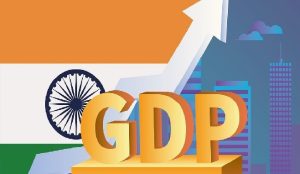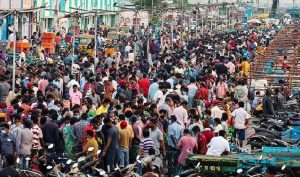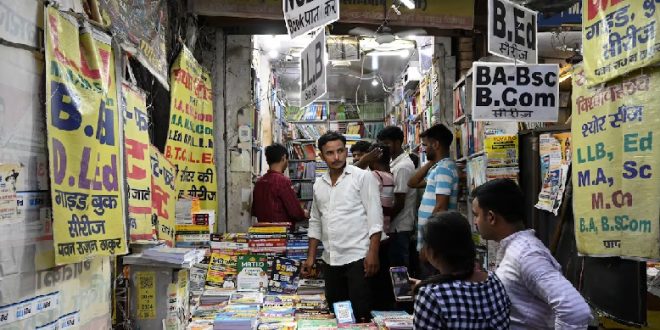22-07-2024
Bureau Report + Agencies
NEW DELHI/ PRAYAGARAJ: Sunil Kumar, a 30-year-old, has spent the last 9 years of his life chasing a job in the Indian government.
Packed with scores of others in makeshift classrooms under tin roofs with barely enough light and air, Kumar has spent years cramming for a variety of tests, including the prestigious civil services exam needed to get a job as a federal government bureaucrat. He has also tried for a provincial civil services post and two other tests for lower level government positions.
 He has been unsuccessful in 13 attempts to get a job.
He has been unsuccessful in 13 attempts to get a job.
A resident of Uttar Pradesh, the country’s most populous state, Kumar says he will continue to try for a government job until he turns 32, three years short of the cut-off for him to appear in a civil services exam.
“There is more security in government jobs,” said Kumar. “If it happens in 2-3 years, the struggle of 10 years will be worth it.”
According to government figures, 220 million people applied for federal jobs during 2014-2022, of whom 722,000 were selected. Many of those would have been repeat attempts, but still, tens of millions of young Indians chase government jobs every year even though the economy is booming and the private sector is expanding.
The trend underscores cultural and economic anxieties facing many Indians. Despite living in the world’s fastest-growing major economy, many are grappling with an uncertain employment market where job opportunities, let alone job security, are hard to come by. Many see government employment as more secure than private-sector jobs in the world’s most populous nation.
“If one person in the family gets a government job, the family believes they are settled for life,” said Zafar Baksh, who runs a training institute for those appearing in tests for such jobs.
In neighboring Bangladesh, student protests against reserved quotas in government jobs killed more than 100 people last week.
Since 2014, India’s GDP has grown from $2 trillion to near $3.5 trillion in fiscal 2023-24 (April-March) and is expected to expand 7.2% in the current year.
The aspirants say the government offers lifelong security, health benefits, pensions and housing, which they may not get in private employment. Few will admit to it, but many of the government jobs also offer the prospect of money under the table.
 Growing demand for the cram school classes has attracted large players and lessons have moved online too, said Baksh, who sees it as a lucrative and perennial business. “There will always be demand.”
Growing demand for the cram school classes has attracted large players and lessons have moved online too, said Baksh, who sees it as a lucrative and perennial business. “There will always be demand.”
Discontent over employment opportunities was cited by analysts as a key reason for Prime Minister Narendra Modi’s party failing to win a majority on its own in the April-May general election, and returning to power only with the support of allies.
Government data released this month showed 20 million new employment opportunities were generated in India each year since 2017/18 but private economists said much of this was self-employment and temporary farm hiring rather than formal positions with regular wages.
The government, which presents the first budget since the election next week, is likely to push job creation by giving tax incentives for new manufacturing facilities as well as by encouraging local procurement across sectors like defence, Nomura said in a note this month but these will take time to yield jobs.
“It’s not just that there aren’t enough jobs out there, it’s also that there are not enough jobs that pay well and give you security of tenure and other benefits,” said Rosa Abraham, assistant professor at the Centre for Sustainable Employment at Azim Premji University in Bengaluru city.
 Pressmediaofindia
Pressmediaofindia




